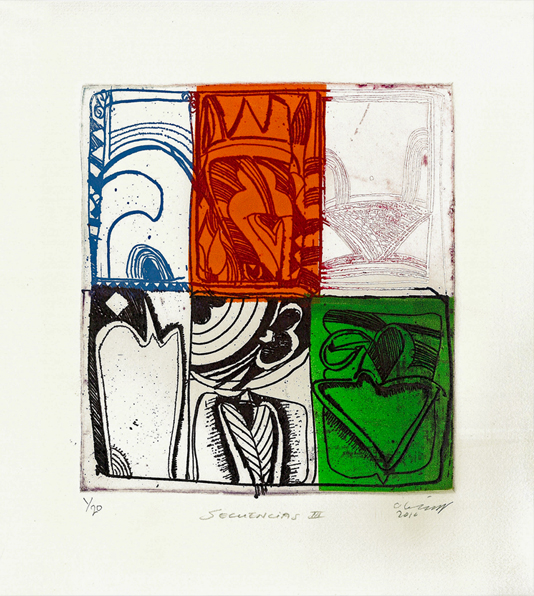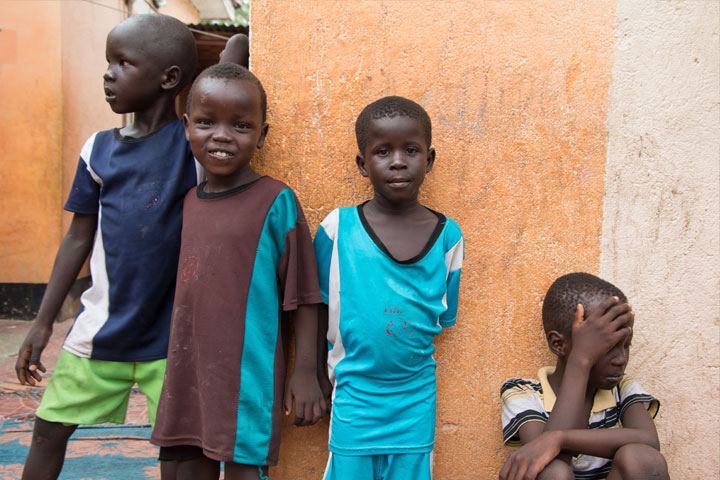Rashid Diab

SOS-Edition 2010
Edition: 20
Numbered and signed etching
Etching: 28 x 25 cm
Frame: 39,5 x 42 cm
Sold out
Rashid Diab was born in 1957 in Wad Medani, a small town on the banks of the Blue Nile in Sudan. He studied painting at the Compultense University of Madrid, Spain.
After being awarded his PhD, he spent several years teaching at the same university.
In 1995, he participated in “Right to Hope”, the United Nations exhibition in Johannesburg, South Africa. In the same year, he could also be seen at the White Chapel Gallery in London.
In 1997 he had a solo show at the Third Sharjah Biennale in the United Arab Emirates.
In 2000 he exhibited some of his works at the “Transatlantic Dialogue, Contemporary Art In and Out of Africa” at the National Smithsonian Museum of African Art, Washington, USA. In 2001 his art was shown at the Art Contemporain Expo in Beirut, Lebanon and at the Contemporary Arab Art exhibition at the Wereldmuseum in Rotterdam, Holland.
In 2003 he displayed his work at the European Parliament in Brussels.
His latest solo exhibition could be seen at the National Gallery in Riyadh, Saudi Arabia in 2010.
In his home country, Rashid Diab founded the Rashid Diab Art Centre for the creative and cultural exchange of Sudanese artists. He attends not only to painting, but also to the creative and cultural exchange and the promotion of young artists. In the space that he has provided, they can work and exhibit collectively, but also play music and engage in conversation.
Today, Rashid Diab lives and works Khartoum, Sudan.
SOS Children’s Village, Malakal, South Sudan
The young republic of South Sudan has many facets: savannahs, mountain ranges, swamps and rain forests. However, for decades it has been the site of a murderous civil war. Periods of drought repeatedly lead to famine. The people are lacking food, water and medical supplies. Countless children are malnourished. South Sudan is one of the poorest countries on earth.
The SOS Children’s Village, Malakal was established in 2002 and is home to one hundred war orphans, traumatized and abandoned children. Here they experience shelter and safety whilst being lovingly nursed back to health by their SOS mothers.
The children’s early integration in the society and in the national culture is paramount to the SOS team which consists of local team members. Teachers prepare the village’s adolescents for independence. Education is considered the key to an independent life.
Whether through psychological support for child soldiers, reuniting family members after the turmoils of war, or the admission of refugees into the Children’s Village, the SOS staff in Malakal take all the challenges in order to pave the way to the future for as many children as possible.
